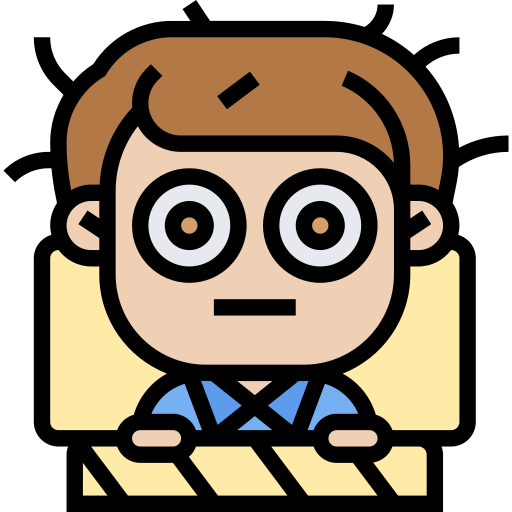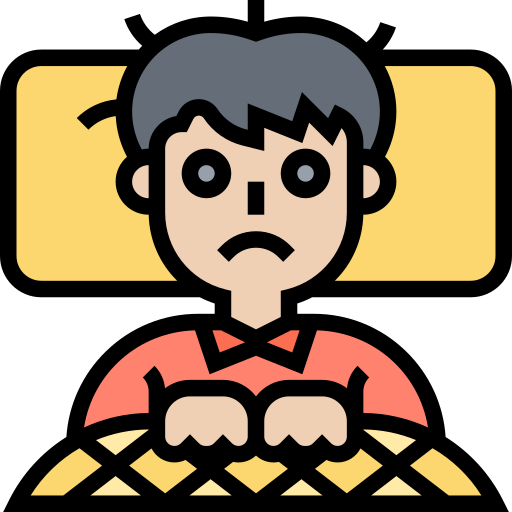Insomnia is a sleep disorder characterized by difficulty falling asleep, staying asleep, or experiencing non-restorative
sleep, despite having adequate opportunity and circumstances for sleep. To qualify as insomnia, this difficulty must be
associated with daytime impairment or distress, occur at least three times per week, and persist for at least one month.
Insomnia as a disorder results in negative consequences that are not simply the normal effects of sleep loss but rather
stem from a pathological response to the condition

Insomnia should not be confused with occasional sleep disturbances or poor sleep that results from external factors, such
as a noisy environment, temporary stress, or an inconsistent sleep schedule. Additionally, the normal consequences of
sleep deprivation, such as fatigue or irritability, do not constitute insomnia unless they are linked to the specific
pathological patterns described above. For insomnia to be considered a disorder, it must present a persistent pattern of
sleep difficulty leading to significant daytime impairment, beyond just the typical effects of a bad night’s sleep

Acute insomia refers to sleep difficulties lasting a few days to weeks, but not exceeding three months. It is often triggered by external stressors, such as a major life event like divorce or illness.

If sleep difficulties persist for more than three months, the condition is classified as chronic insomnia. This type involves sleep issues and related daytime symptoms, like fatigue and concentration problems, occurring at least three days a week. Chronic insomnia affects approximately 10% to 15% of people and can significantly impair work, school performance, and social life, often causing distress over the inability to sleep.
Insomnia manifests through various symptoms that affect both sleep and daytime functioning
Lying awake for long periods before sleep begins
Waking up frequently during the night or waking up too early and not being able to go back to
sleep
Feeling tired or unrefreshed even after what seems like a full night’s sleep.
Persistent tiredness, low energy, and general lethargy during the day
Increased frustration, mood swings, or symptoms of anxiety and depression
Trouble focusing, remembering things, or making decisions.
If you experience these symptoms frequently and they significantly interfere with your daily life, relationships, work, or school, it may be time to seek professional help. A mental health professional, such as a psychologist, psychiatrist, or counselor, can provide a proper diagnosis and recommend an appropriate treatment plan.
Go to bed and wake up at the same time every day, even on weekends.
Keep your bedroom cool, dark, and quiet. Consider using earplugs, an eye mask,
or white noise machines.
Avoid caffeine, nicotine, and heavy meals close to bedtime.
Practice deep breathing, meditation, or progressive muscle relaxation before bed.
Engage in physical activity during the day, but avoid vigorous exercise close to bedtime.
Limit exposure to screens (phones, tablets, computers) at least an hour before sleep, as the
blue light can interfere with your body’s production of melatonin.
If you need to nap, keep it short (20-30 minutes) and do so earlier in the day.
If insomnia persists, consider cognitive-behavioral therapy for insomnia (CBT-I) or consult a
healthcare provider for further guidance.

Abha Healing Foundation